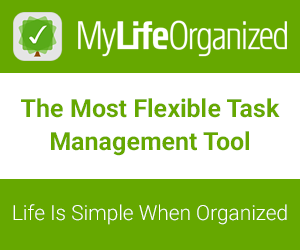It can be a challenge to stay on top of your freelance proofreading finances as a freelancer, from sorting your taxes to dealing with irregular payments. The key to being successful at freelancing is to manage your money well. To assist you with managing your finances in a more straightforward manner, we’ve compiled a few tips for you that can make the process less intimidating (and perhaps a little less time-consuming too), which will hopefully lead to financial freedom. Keeping your finances organized requires that you:
- Having a budget (and sticking to it) is very important.
- You can monitor and manage your finances with the help of accounting software.
- It is a good idea to set up a tax-saving schedule.
- Make sure your personal and business finances are kept separate.
- Pay irregularly and expect downtime.
- Please read below for more information on all this.
Set And Keep To A Budget
Reduce your spending in comparison with your savings. You’d think it’d be easy, right? However, the reality is that it is not always as simple as you might think. This is one reason why you should set up a proper budget for your project.
An effective budget will enable you to know where your money is going on a regular basis and help you spend and save wisely, regardless of whether you are running a business or not.
You must stick to your budget in order for it to be effective. It means that you should be reviewing your income and expenditures regularly to make sure you are still on track. Your budget will become an indispensable tool for planning and managing your finances as you put time and effort into it.
Keep your Personal And Business Finances Separate
It will be easier to manage your finances if you separate your personal finances from business finances, whether freelancing is a side hustle or your full-time job.
Your business and personal finances should be shared bank accounts, according to most accountants. Managing your financial situation this way will prevent you from accidentally paying for business expenses with personal funds (and vice versa). Tax reasons also make it important to identify business expenses. Regarding taxes, you need to ensure you track everything including things such as claiming milage as part of your self assessment return.
Keep Funds To One Side For Taxes
We all know… taxes (a collective groan). Being your own boss is a big advantage. But you pay taxes differently if you are self-employed.
You need to calculate and pay your taxes yourself if your employer does not take their taxes out of your pay packet on a pay-as-you-earn basis. You should therefore set aside money every month so you are able to pay your taxes on time.
It is crucial to familiarize yourself with the local tax laws so you know how much and when to pay your taxes. If you’re not comfortable with taxes, consult an accountant. In the long run, the money spent will save you from fees and penalties for late payments.
Make Use Of Accounting Software to Track Your Finances
To manage your budget, you need to develop a system for tracking your finances. Accountancy software can help you do this. According to your needs, the most valuable features will vary. Here are a few to consider:
- Keeping track of your income and expenditures.
- Integrate your bank and credit cards for constant updates.
- Billing capabilities that make billing clients easier.
- Paying taxes doesn’t have to be stressful with these tax calculation tools.
Plan For Downtime And Irregular Work
Some freelancers become overburdened with clients, then barely earn a thing the next month when they have more work than they can handle. When there is a lull in business, a financial reserve/emergency fund is an essential component of ensuring your financial success.
Set aside a little money each pay period to build your reserves. Until you have three to six months of income saved, save one month’s income. In quieter times, you can use this money to cover unexpected expenses.
By putting aside a bit of money regularly, you’ll find that you can take vacations without worrying about missing out on opportunities. You should budget for taking time off now and then, as some downtime is vital for your health!
This short guide should help you to keep on top of your finances as a freelancer. What tool do you use to keep track? Please share some of them in the comments below.
Image Credits: RF._.studio




Like this article? Share with your friends!